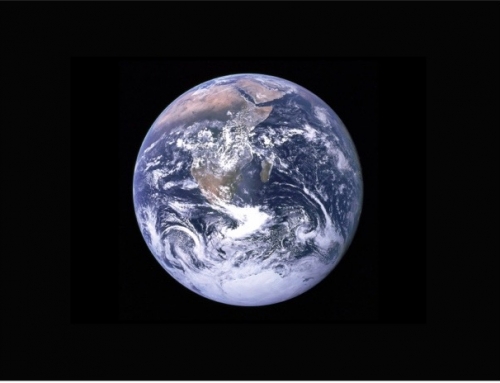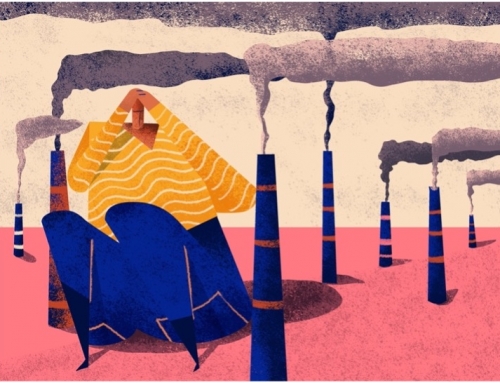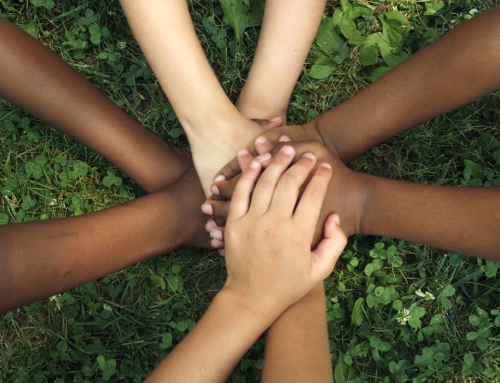Okay, not always. But hear me out, sympathy will not lead to the needed radical transformations in society. Empathy will.
How would you feel about getting hit by a car?
The world of today is massively complex. The digitalization of society makes us see, hear and speak with people from all over the world. This interconnectedness creates the possibility to care about everything and everyone. However, it also creates the possibility to judge everything and everyone.
In February 2022, a hostage was taken in the city centre of Amsterdam. After an evening of traumatic experiences for the victim, he escaped. The captor ran after the victim and after a short run, the hostage-taker was hit by a police car. The attacker died the following day from his injuries.
While I was following these events on social media, a discussion emerged. One person mentioned that she was feeling bad for a person getting hurt by a car. She mentioned that she hated the act of the hostage-taker, yet that she felt sick by the enjoyment people felt when this guy was hit by a vehicle (De Telegraaf, 2022). A lot of online abuse followed and the discussion emerged on the difference between empathy and sympathy. It showed that a lot of people think that empathy and sympathy are interchangeable and I used them that way as well. However, they are not.
In this blog, I want you to go with me to discover these differences and understand the importance of these alterations and how they can benefit individuals and communities. Next to that, I am wondering what kind of possibilities a Social Innovator has by understanding these different terms and how we all might benefit from this understanding.
Understanding the “pathy”
As Covey said, first understand, before being understood. What is empathy? And what is sympathy?
Let’s start with the latter. Sympathy is the understanding of others’ feelings. You feel sorry for the other. In a sense, sympathy is about feeling for and not feeling with the other. Sympathy can bring comfort. It acknowledges the feeling of the other and confirms that this feeling is grounded.
Looking at it negatively, feeling sympathy for someone strengthens their victim status. You feel pity and by being sympathetic agree with the feeling they have. Whilst sometimes this is more than logical, with the passing of a loved one or personal sickness, it does not support the other in gaining ownership of the solution that might be needed. Sympathy does not empower change, it supports the status quo. It enlarges the fear of transformation, it confirms struggles and the depth of challenges gets deeper. Sympathy only strengthens the bond between people when they agree. However, it disconnects the relationship with other views. Being sympathetic creates the possibility of a parallel unknown reality. One that generates fear because the unknown is feared.
In sympathy, you add your sorrow. And while you will not feel that alone anymore, because someone joined you, the hole of the issue gets bigger. Fear and annoyance are fuel to the pity the other feels. Because of sympathy, the struggles get confirmed and thus real. When you treat people like victims, they will act like victims.
Empathy, on the other hand, fuels connections. Empathy let us feel with the other. By being empathic, you do not judge situations. You take the other perspective on reality and recognize the emotions the other feels. Again, this is without judgement – not positive nor negative. Empathy is about understanding, not about responding. Empathy is the art of humanity. It is what makes us different and what makes us have the possibility to create realities when we have empathy and destroy realities when we lack empathy.
My perspective
Sympathy should never be mistaken for empathy. I believe that sympathy has no use in the creation of systemic change. Sympathy, in a way, is simplistic. It gives a holistic view of the challenges that we face as mankind. Sympathy is the greenwashing of human emotions. It makes us feel better when we sympathize with the other, but it gives not the needed energy to bring transformation. With sympathy, you feel autonomous. You are in charge of the actions you take.
However, I believe that society is a living organism. Humanity is one. Meaning that being fully autonomous always comes at the cost of another. We need the other. We need understanding between each other and we need to face the global challenges together. Empathy is the conduction between all of us. Empathy is made out of love and compassion. These elements are necessities in one’s life. Not luxuries. Without that humanity will not survive, nothing will survive without love and compassion. But love can be hard, should be hard. Love makes you reflect on yourself, your own emotions, feelings, and perspectives. It makes you reflect on who you are in the many.
Sympathy takes away this harshness and this honesty. Sympathy puts you parallel to the other. It is about you or them. Not about us. And it is shared humanity that we need to challenge the realities we face.
Institutional power & personal responsibility
If empathy makes individuals act together, then how does this looks in society? How does this connect to the people in power? Looking towards myself, do I feel empathic to institutionalized power and how do I act accordingly to these insights?
One might disagree with institutionalized power. Even if this is created through democracy. A person might not feel any sympathy for the policies that have been implemented and dislike the existence of certain political parties. Yet, one might feel empathic towards the choices individuals make.
I do not feel any sympathy, nor any empathy towards leaders of populistic right-wing parties. I think they are inherently evil to society. However, I do feel empathy towards the people who vote for these parties. Understanding the underlying emotions and feelings, the distrust they have towards ruling parties and the sense that they are not heard creates the possibility to feel the emotions. I will never agree with their views, but I can understand and feel where they come from and I will defend their freedom of speech.
I believe that this separation between institutions and individuals should be understood. Empathy for an individual might take away the fear they feel. It will make us meet the unknown. Not as something scary, but as something to learn and understand. Sympathy does not do this. Sympathy acknowledges the pity you have for a poor person. However it will not make you understand them, and, even more importantly, let them understand you. It keeps the realities parallel.
Empathy towards a ruling power empowers them in the actions they take. Let’s not forget that parties and communities exist through the connections of individuals. An organization, political group, or other community will not transform by itself. It transforms by the people. That is why empathy is so important. Empathy takes away fear, takes away limitations and opens up possibilities to learn, understand and connect. Empathy is not about agreeing with the other. It is about understanding. Only if people start to understand each other, sustainable change can occur.
What does this mean for communities?
Social Innovation is as much about feeling as it is about facts. By creating the means to use empathy, new connections can be formed. Mutual feelings that are shared can be the fundament on which transformation might emerge. If the feeling is understood, valuable discussions can occur on how to work with these shared realities.
This is also why I think that development based on people’s assets is crucial in the system changes that we focus on (Kretzmann & McKnight, 1993). By creating these conversations, by empathic listening and talking, understanding is formed on which sustainable transformation can happen. Even cross-boundary and interculturally.
However, someone should not make the same mistake for a community as we sometimes do for individuals. We should not approach a community with pity and sorrow. We should not act sympathetic to societies that face challenges. Yes, the situation might be bad. Yes, there might be poverty, hate and inequality. Believe me, they know. But by only acknowledging this situation, change will not happen. These communities that are affected by these challenges, know this already. But by striving towards understanding, we can support and serve the transformation that is needed.
Empathy is the tool to get societal systemic change. So, let’s embrace the complexities of empathy. Let us connect, talk and move together.
Only then, a transformation towards a better world will happen.
References
De Telegraaf. (2022). Georgina Verbaan onder vuur na tweet over gijzeling Amsterdam. De Telegraaf.
Derksen, F., Bensing, J., & Lagro-Janssen, A. (2013, January). Effectiveness of empathy in general practice: a systemic review. British Journal of General Practice.
Kisling, J. (2018, November 6). The Difference Between Empathy & Sympathy. Opgehaald van Psychiatric Medical Care: https://www.psychmc.com/articles/empathy-vs-sympathy
Kretzmann, J., & McKnight, J. (1993). Building Communities From the Inside Out: A Path Toward Finding and Mobilizing a Community’s Assets. Chigago : ACTA Publications.
Logan, L. (2021). The Art of Empathy. Opgehaald van School of Art Institute of Chicago: https://www.saic.edu/news/marketing-communications/art-empathy-0
Radhakrishan, R., & Uttekar, P. S. (2021, January 27). Is Sympathy Better Than Empathy? Opgehaald van MedicineNet: https://www.medicinenet.com/is_sympathy_better_than_empathy/article.htm
Schairer, S. (2017, August). Empathy, Sympathy, and Compassion – What’s the Difference? . Opgehaald van Compassion it: https://compassionit.com/2017/08/27/empathy-sympathy-and-compassion-whats-the-difference/





